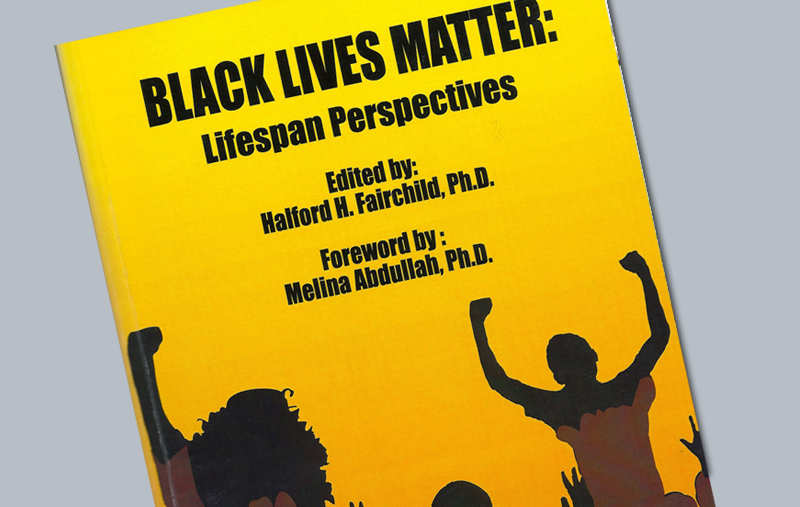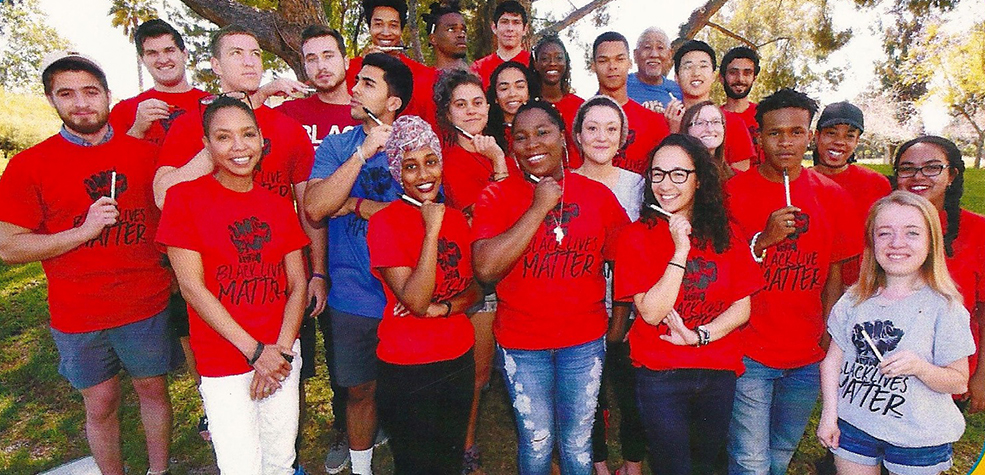Harvey Mudd Students Contribute to Black Lives Matter Compendium
February 7, 2017
In what may be the first textbook written by and for undergraduate students, the perils that confront people of African descent are explored and the Black Lives Matter movement is celebrated. Harvey Mudd College students Matthew Simon ’18 and Omar Velazquez ’18 are among the contributors to Black Lives Matter: Lifespan Perspectives.
 Organized chronologically—from birth and infancy to adulthood and old age—the book was produced by the Introduction to African American Psychology class (shown right), taught during spring 2016 by Pitzer College Professor Emeritus of Psychology and Africana Studies Hal Fairchild, who served as editor. “Instead of pouring information into students and testing their understanding and retention, I taught them to ask relevant questions, acquire and synthesize research and produce cogent (and publishable) written analyses,” says Fairchild, who retired in June 2016.
Organized chronologically—from birth and infancy to adulthood and old age—the book was produced by the Introduction to African American Psychology class (shown right), taught during spring 2016 by Pitzer College Professor Emeritus of Psychology and Africana Studies Hal Fairchild, who served as editor. “Instead of pouring information into students and testing their understanding and retention, I taught them to ask relevant questions, acquire and synthesize research and produce cogent (and publishable) written analyses,” says Fairchild, who retired in June 2016.
Velazquez, a chemistry major, is author of four chapters and a poem in Black Lives Matter: Lifespan Perspectives. His interest in healthcare is reflected in his writing.
“I have been interested in the shortcomings of healthcare that lead to many diseases disproportionately affecting underrepresented individuals. I have spent as much time as I can shadowing physicians and learning all I can about healthcare and have seen a lot of problems firsthand,” says Velazquez, who first became interested in becoming a physician during middle school. “These experiences have solidified my interest in becoming a physician and changing the way healthcare is implemented in order to reduce health disparities.”
His chapter topics cover the prevention of sudden infant death syndrome in the African-American community, childhood mental health in South Africa, mental illness among African-American adolescents and racial health disparities in the United States.
“I am honored to have been given the opportunity to contribute to the book by writing about topics that interested me and that I felt were important,” he says. “I am also very happy to have been able to contribute chapters that draw much-needed attention to problems like those I hope to address when I become a physician.”
Suitable as a primary text in psychology or Africana Studies, the book has already been adopted in an undergraduate psychology course at University of California, Irvine. Fairchild, author of two other books with student co-authors, says that 100 percent of royalties from Black Lives Matter: Lifespan Perspectives will be donated to two endowed scholarships at Pitzer College.
